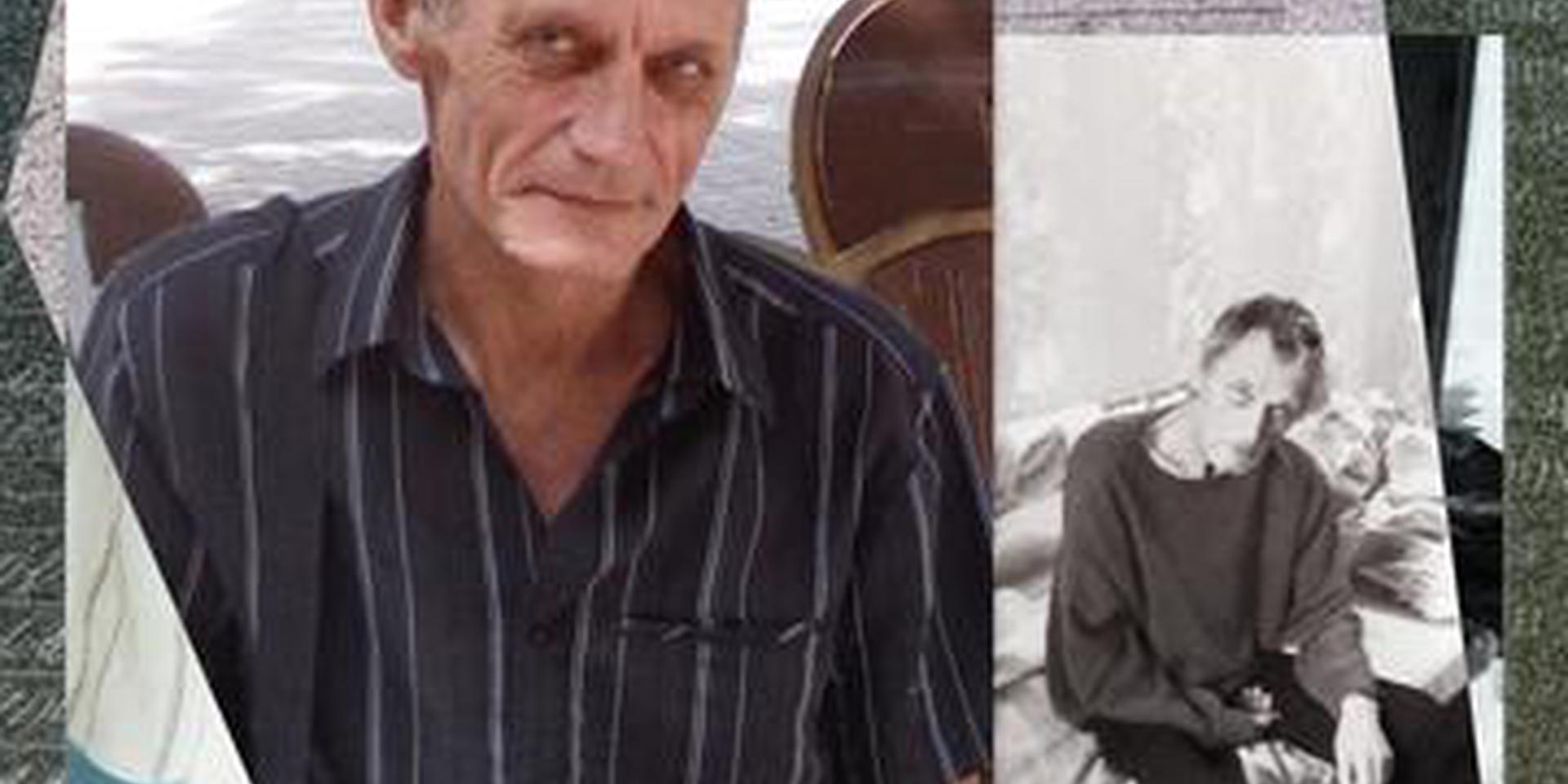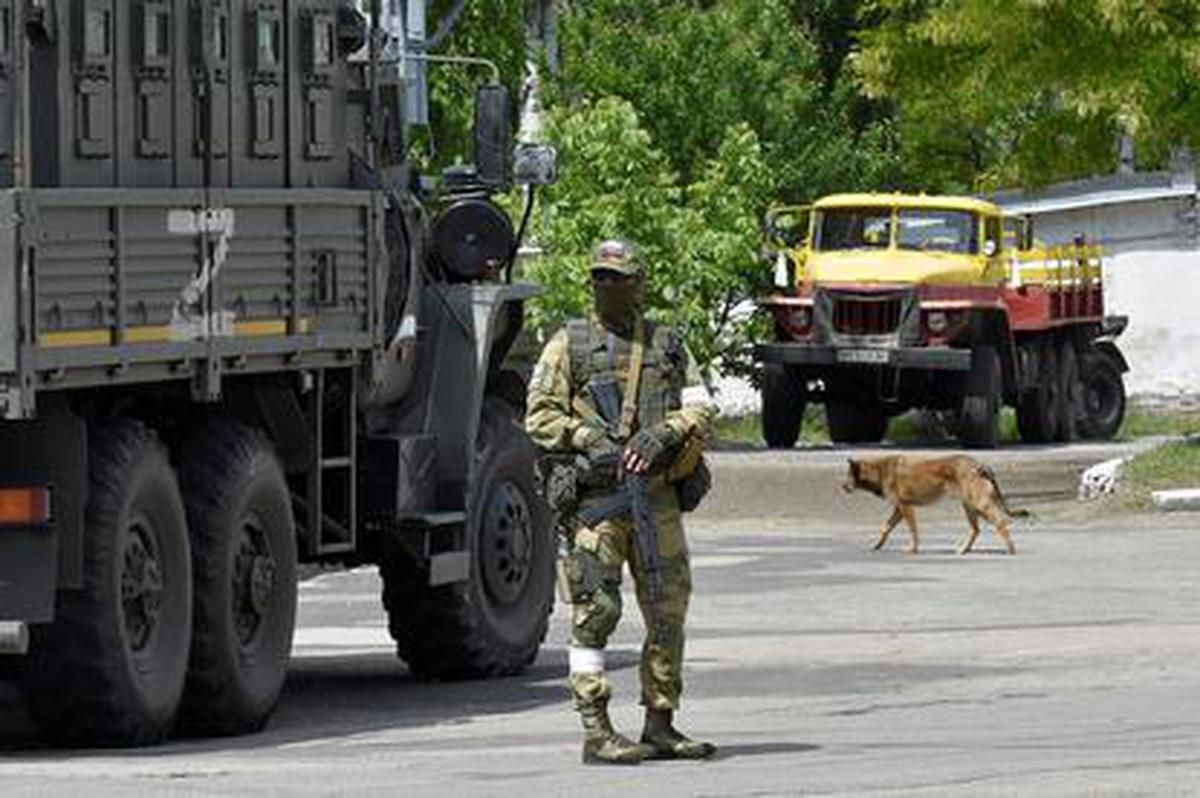Stroke amidst the War
Every day Marina searches for medication so that her father does not lose his ability to speak and can get out of bed. It is not always possible to find medications. One family’s story illustrates how sick people in the occupied territories survive

For the past 15 years, Marina Litvinenko has lived in Kyiv, and her father Alexander Litvinenko has resided in Kherson. When the war began, he refused to leave despite his daughter's requests. "If he has made up his mind, there is no point in changing it. He is a military man. When the occupation started, he did not panic. He has this notion: my house, I live in it and will live in it, I'm not going anywhere."
For the last few years, Marina's father worked in the security business. With the beginning of the war, companies stopped operating and Alexander lost his job. Marina helped her father by providing him with money and groceries. When there was a mobile connection in Kherson, they talked over the phone every day. "Since 2014, when my mother died, we had an arrangement with him to call in the morning and evening, so that I knew he was alive, healthy. That's how we've been calling each other for eight years," the woman says.
On the morning of April 14, Alexander told his daughter that he felt bad and that he was going to call an ambulance. The next time Marina was able to reach her father only in the evening: "He was already talking very badly, he said only that he was in the hospital. That was the last time Marina could talk to her father: then he completely lost speech and his body was paralyzed. The woman learned from the doctors about how a healthy man turned into a bed-ridden patient in just a day.
“You can't reason with someone who has guns”
A paramedic told Marina that the ambulance arrived promptly at her father's call and the doctor diagnosed him with a stroke. It is critical to provide help as soon as possible in case of a stroke, and the ambulance left with Alexander for the hospital, but the car was stopped at the roadblock. "They checked the ambulance, checked my father, looked for documents, then verified those documents. They held up the ambulance for several hours, even though the doctor explained that they were taking a man with a suspected stroke and that it was necessary to get to the hospital as soon as possible. But you can't reason with someone who has guns. As a result, time was wasted and my father developed complications. He was brought to the Stroke Center on a gurney: he could neither stand up nor speak properly anymore.
The diagnosis was confirmed at the Stroke Center — right hemisphere ischemic stroke. Ten days later, the attending doctor called Marina and said to come and get her father: "I gave him medication for ten days, he was examined, there was no response (the symptoms neither worsened nor disappeared — Ed.), take him away. Marina was told that there were many patients, medications were limited, and there was no point in wasting time and medications on a person who was not responding to treatment. "It was not very pleasant to hear: 'Take your father home, and do whatever you want there, wait until he dies,'" the woman recalls.

“We took it upon ourselves to get the medication and IVs”
The family doctor told Marina to go to the district hospital where she lived. The head doctor of the hospital agreed to put Alexander in the hospital, but he warned right away that the neurological department was not provided with all the medications, so Marina would have to buy them.
But it also turned out to be problematic to transport the patient from one hospital to another. "The ambulance agreed to transport my father for free, their supervisor stepped in, but they had problems with diesel. I made arrangements through my acquaintances, we got the diesel and brought it. Then the guys from the ambulance transported him," recalls Marina.
Many of Marina's friends and acquaintances participated in the search for medications and IVs. In April, pharmacies in Kherson still had medications left and it was possible to buy them. "We took it upon ourselves to get the medication and IVs. I looked at what pharmacy chains there were in Kherson and called their branches in Kyiv. They would search the databases and tell me where in Kherson I could buy leftovers of certain medications. I called friends, acquaintances, neighbors, and asked them to buy it. They knew me and my father well, they were helpful. If it weren't for them, I don't know how my father would have received his medications.
After the neurological treatment center and treatment at the district hospital, Alexander's condition started to improve: "He regained the ability to understand speech, responded when spoken to, and communicated.
“In response to any question, they first send me to apply for a Russian passport”
When Alexander was released home, Marina tried to apply for a disability status for her father, which, according to the law, entitles him to free medication and payments. The woman went to the Medical and Social Expert Commission (MSEC), which decides whether a person can receive a pension. But this system stopped working in the occupied territories. "In Kherson MSEC no one answered the phone. I asked my acquaintances to come personally, and they were told that nothing was being drawn up there.
The all-Ukrainian hotline for humanitarian issues could not help Marina either: "Previously you could appeal to it on any issue. Now they just accept requests and say: "Wait. When the opportunity arises, we will respond."
The occupation authorities first send us to apply for a Russian passport in response to any question. "Our neighbor was interested in some issue. She was told to apply for a passport, get registered, and then they'll see."
The Ukrainian authorities cannot help people in the occupied territories. "Everywhere I go, everyone says: "Evacuate your father to the territories under Ukrainian control, and we will solve everything." And while he is in Kherson, he cannot be issued a disability status or get a pension. Now there is no help from the state, we have to use our own resources," Marina says.
“If he gets sick again, it will be impossible to hospitalize him promptly”
Evacuation will only be possible when Alexander's condition improves. Marina found a specialist who deals with her father every day. "She has good experience in working with serious patients. And my father is getting better: he can go to the toilet by himself now, we have forgotten about diapers. He sits down and tries to eat by himself."
While he cannot take care of himself, neighbors and a woman who comes to rehabilitate him help. They buy groceries, cook, and feed him. Through these same people, Marina learns about her father's condition. "It is like we are living in primitive times. There is no Internet connection in the house. People look for places where they can find the Internet and from there they write me messages about my father's condition. If he gets sick again, it will be impossible to hospitalize him promptly. Now we have to go to the main office, tell them that the man is unwell and arrange to have him moved from one hospital to another or from home to hospital."
“Seeing him is the main goal”
To prevent a stroke from recurring and his condition from worsening, Alexander must take prescribed medications, but finding them in the occupied city is becoming increasingly difficult. "In May, when my father was in the hospitals, it was still possible to find something in the pharmacies. Now there are mostly standard drugs brought in from Crimea. I am looking for options to buy medicines from private sellers in Kherson," Marina says. "There are special groups on Telegram where people post what they have. I take a blister pack from someone, two pills from someone else. Or I order them and ask the volunteers to deliver them from the territories under [Ukrainian] control, although lately the medications are taken away from them at roadblocks. That's how we get by."
“As long as there are medications, my father's condition is stable, but if there are no medications, on the second or third day he stops getting up, talking, just starts mumbling, and there are problems with his joints”
"As long as there are medications, my father's condition is stable, but if there are no medications, on the second or third day he stops getting up, talking, just starts mumbling, and there are problems with his joints," Marina explains. "I look for medications every day: I try to call someone, someone writes to me that there are drugs in the pharmacy, then someone buys these drugs and writes back to me. Now the situation is very difficult: sometimes the interruptions in treatment are up to a week."
Another difficulty is to pay for the found medicines. Bank cards do not work in Kherson, and money can only be cashed from private individuals, who charge 10-15% commission. Prices for medicines have also risen sharply in conditions of shortage. The blood thinning medication that Alexander has to take every day used to cost about UAH 130, but now, according to Marina, they sell it for 900. Every ten days of her father's treatment costs her five or six thousand hryvnias (around USD 200 — Ed.).
Now Marina is adamant, she has no time for fears: "War is war. It is necessary not to be afraid, but to act. I am psychologically prepared to accept that there is nowhere to go, we have to live and figure out how to get out of it. I know that my father is worried because he can't hear my voice. I wish most of all that he would live to see the end of the war or that he would be evacuated. He's the only family I have left. Seeing him is my main goal.”